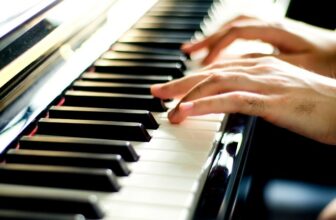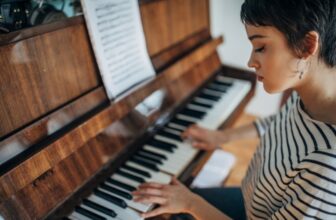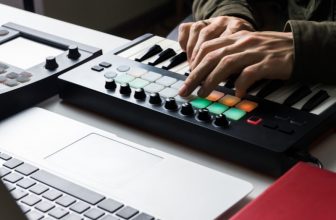How Long Does it Take to Learn Piano?
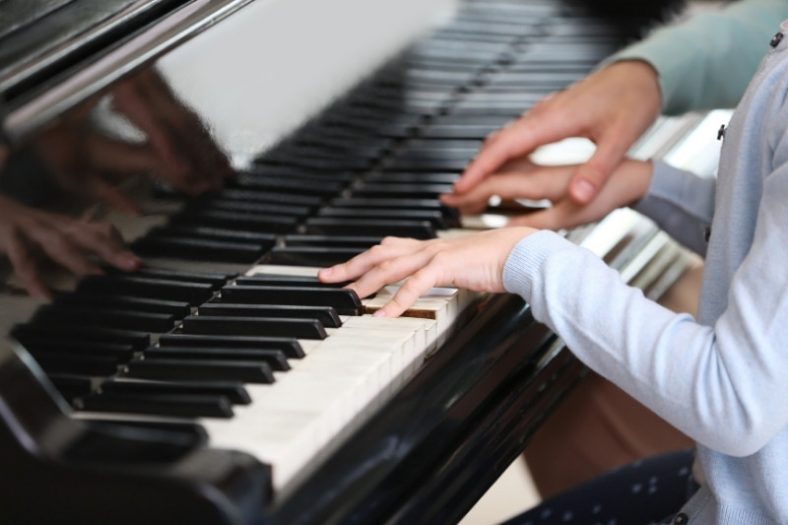
Learning to play the piano is a process that varies for everyone. People can usually play basic songs within 1-2 months, or sooner if they practice a lot. Beginner level can be achieved within a year or less. Intermediate level can take roughly 1-2 years. To reach an advanced level, the time frame is usually at least 2-3 years of consistent, dedicated practice.
Learning to play the piano is a rewarding experience. From learning an instrument to playing beautiful melodies, increased motor functions, dexterity, and hand-eye coordination. The process, however, differs for each individual. It all depends on how devoted you are and how much you practice daily.
Today, I’ll divide piano skill levels into 4 categories and provide a rough estimate for each, depending on the practice, dedication, and how fast you learn.
Contents
How Long Does it Take to Learn Piano – At a Glance
| Skill Level | Time | Summary |
Basic | 1-2 months | Can hold notes, learn basic scales and chords, no multitasking, play very basic songs, and start learning music theory. |
Beginner | 2-12 months | Familiar with the piano and all the keys, know the basic scales, start multitasking, play beginner songs with ease, and have basic knowledge of music theory. |
Intermediate | 12-24 months | Better coordination, play faster tempos, know chords and scales, multitasking feels natural, and music theory should be about done. |
Advanced | 24-36+ months | Firm knowledge of the piano, multitasking, playing varying tempos, performing complex songs, and rhythms, and has perfect music theory. |
This is by no means a definitive timeline. The time estimate depends solely on the individual and how much they practice, that is why the timeframes are stretched out.
Time Estimate and Practice Sessions
Learning to play at a basic level is a process that can be achieved fairly easily, within 2 months to be precise. This involves holding notes, learning chords and scales, and a few very basic songs on piano. Coordinating both hands is still out of reach as you are still learning the fundamentals. Also, you’re just starting music theory but everything is still very new and complex.
To achieve beginner level, you need to practice more. This can be anywhere from 2-12 months, assuming you practice 1-2 hours daily. You are familiar with the piano and all the keys, know your scales and chords, and you start to multitask (using and combining both hands). Your knowledge of music theory should be basic but enough to learn beginner songs with ease.
You can reach an intermediate level between 1 and 2 years of playing. If you’re dedicated and practice for 2, even 3+ hours daily, it is possible. You will improve your coordination, play at faster tempos, and multitask with ease. Your scales and chords are perfect, and your knowledge of music theory should be near perfect.
An advanced level can vary anywhere between 2-3 years, or more. This is not easily achievable as it will require dedication and practice to get here. You would have a firm understanding of the instrument and can play varying tempos, rhythms, and complex tunes. Your music theory should be perfect and you practice for more than 3 hours a day.
What is the best way to start learning the piano?
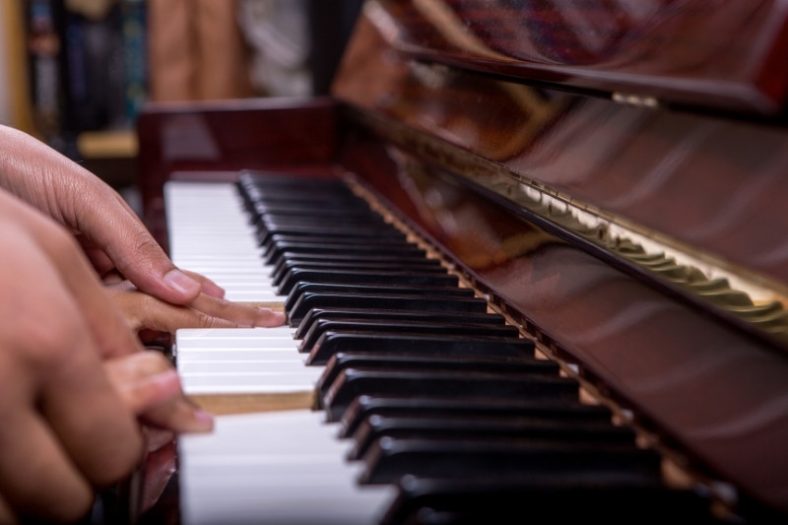
Your best bet, which is most effective, is to start with the basics and gradually progress. Then, it will come down to how much you practice. You should make it fun but knowledgeable to spike your interest and dedication. It’s great to start with some online piano lessons, but finding a private tutor is certainly worth doing for those that are serious about learning. A good teacher can help you identify bad habits and give you tips and practice suggestions.
Additionally, if you want to learn by yourself, check out How To Teach Yourself Piano At Home.
1. Build your foundation
Learning the fundamentals is key! You will get nowhere if you miss out on the basics like scales, chords, and exercises. This is a huge part of training your hearing, coordination, and overall knowledge of the piano.
Everyone wants to achieve the satisfaction of playing Beethoven or Mozart, but without the foundation, that goal will be more out of reach. Start slowly and gradually progress, learn and learn effectively. Get those basics down so you can move on to the next level with the proper skills. 1 to 2-hour practice sessions will be essential here.
2. Practice time
It’s all about practice and consistency. If you devote yourself to practice for more than 2 hours a day, you will achieve levels faster than expected. The goal here is to not skip days and jam everything in one day. Try to be consistent and practice daily rather than 6-hour sessions over the weekend.
Hours mean nothing if you fall off the wagon. The key to the piano is to train your fingers daily and build up that muscle memory. Organize your practice sessions, learn the proper posture for comfort and efficiency and stick with it.
3. Make it fun but knowledgeable
Don’t be afraid to leave your comfort zone and experiment. Learn different techniques and try out different styles to keep it interesting. Making the whole process fun can boost your confidence and interest, and make your practice sessions more efficient.
Be open to mistakes, it’s a natural part of learning. Try a few different genres, try to improvise a little, and unleash your creativity. You play for yourself and not others, if you’re not having fun then the whole process will not be satisfactory. Aim to practice for 2 hours, but devote at least half an hour to learning something new and exciting.
4. Commit to piano lessons
In this day and age, piano lessons are around every corner. Online piano lesson platforms like Pianote (use this link to get a free 30-day trial or check out our pianote review for more info), Flowkey, and Simply Piano have made it so anyone can learn with a modest investment.
Check out our video review of Pianote to learn more.
See our video about Flowkey and Simply Piano comparison below.
The benefit of piano lessons is obvious, you have a structured curriculum, narrow practice approach, and will learn as efficiently as ever. The often-overlooked factor in this equation is the social aspect. The music business survives on people, with lessons you will meet new people, socialize, make friends, and make the process way more enjoyable.
Is learning the Piano hard?
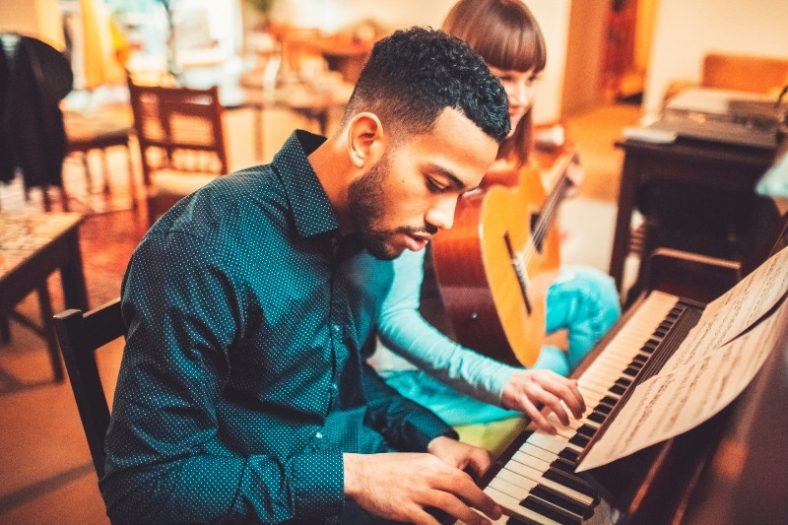
This is a somewhat tricky question with both a yes and no answer. Firstly, yes, it can be hard to learn piano, especially if you find your practice sessions tedious and ‘lasting forever’. To have a firm grasp of the instrument entails a lot of practice and dedication, without the right mindset, fun, and goal, you will have a hard time.
On the other hand, the piano is not hard if you enjoy what you’re doing and having fun. The benefits of learning such an instrument with the added element and spark of making it fun can be a wholesome and easy process. Practice sessions will feel like a gift and you will have an interest in broadening your knowledge further.
I guess it all comes down to the individual. If you’re not enjoying it, it is hard. If you can’t wait to play, it is not! Re-evaluate what your goal is and then proceed with the correct decision.
What is the most suitable beginner Piano to go for?
When starting, try to find a good affordable digital piano or keyboard. This route is certainly worth the investment and will not break your bank. The only thing to keep in mind is how many keys you need for a beginner piano/keyboard, which translates to 61-key keyboards being the optimal choice for any beginner.
As for a more narrow approach, there are countless budget options on the market, but I recommend you check out the Yamaha PSR-E373. This 61-key touch-sensitive keyboard should be more than enough to learn the piano on.
What are some additional accessories and tips?
One piece of advice is to maybe invest in some piano books if you’re serious about learning. Piano books are a great source of knowledge that is often taken for granted. Additionally, try some online lessons like the ones mentioned previously.
Private lessons are also a great way to go. With a private tutor, your learning experience will be more narrow and on-hand. You will progress faster and will have guidance on how much you should practice, what to practice, and so on. There are also a few dedicated apps for learning the piano.
A few comforting words, in a way, are that you are never too old to learn the piano. Adults have the advantage even because they are more structured, organized, and serious about their hobbies and endeavors.
Lastly, keep it simple and fun. Try to be consistent and progression will happen when you’re too busy having fun.
Conclusion
Learning the piano can be a fun and rewarding experience, but it takes time, effort, and dedication. The most important thing is to enjoy the process and make it part of your daily routine. With the right mindset and approach, you will progress faster than expected.
Different levels can be easy or hard. To amass basic knowledge of the piano, it would take 1-2 months. Beginner level can be achieved within a year, or less, if you practice daily. An intermediate level is a tricky one but fairly doable in under 2 years. Finally, to reach an advanced level, it will take 2-3 years, maybe more, depending on your practice sessions and consistency.
Don’t forget that it’s all about having fun. Make it a part of your life and you will reach your goals in no time! 61-key keyboards are the best for beginners. Also, consider taking some online lessons or private tutoring sessions to get the most out of your learning experience.

